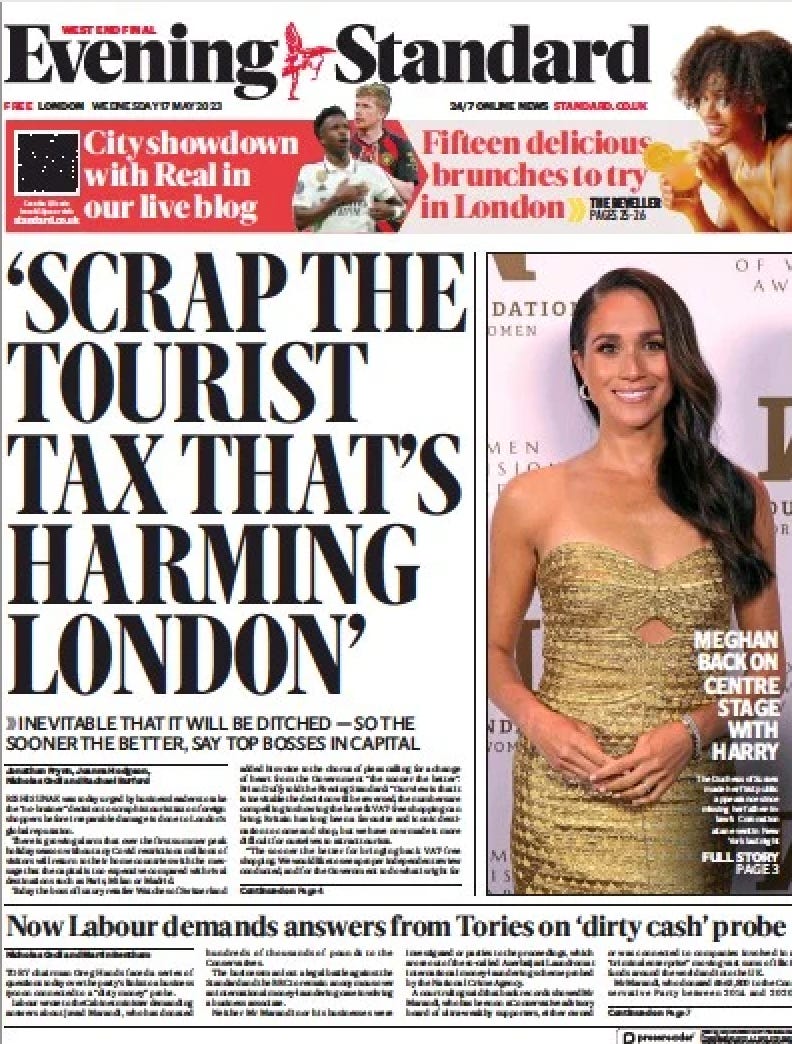Don't you agree?
Self-censorship: Substack's dirty little secret
I thought Friday’s edition was pretty good. In case you missed it, I listened to Liz Truss’s appearance on the Odd Lots podcast — during which she made King Lear look like a pretty self-aware sort of guy — and wrote down the 23 things she got wrong, replete with corrections in red pen. But I also felt a little… dirty. Because I kind of suspected you’d like it too.
Not because I possess reams of your personal data, but with the best will in the world, you subscribe to Lines To Take, a daily newsletter comprised entirely of my views. And so, in my best Carrie Bradshaw impression, I got to thinking: was I guilty of pandering, or are we all just trying to be read?
We all self-censor pretty much all the time. No one actually wants to be friends with people who act like those late nineties reality television contestants who introduce themselves on camera by declaring, “I’m not rude, I just tell it how it is.” And I think we accept limits on our speech when it comes to our employers. For example, if you work for Coca-Cola, I think it is a reasonable expectation that you do not post on social media about your preference for Pepsi.
As a leader writer for the Evening Standard, I occasionally had to draft things I didn’t agree with. Fortunately, we’re not talking ‘In praise of ivory dealers’ or ‘How to get more toddlers to take up smoking’. But I did write roughly a bajillion leaders in favour of restoring VAT-free shopping for tourists, also known as the ‘tourist tax’, which I was highly sceptical of. Fortunately, I also didn’t care that much either, and since it was a leader, it didn’t appear with my byline.
But I am clearly compromised on Substack. How often do I soften my takes when my employer is the audience — diffuse, opinionated and just one unpopular newsletter away from unsubscribing? You did not sign up for headlines, impartial reporting or newsy scoops. In fact, there is really no reason for you to be here unless you are (1) related to me or (2) like the product (or both, I guess).
I hope you enjoy choice of subjects, the style and that you at least glaze over the Roger Federer/Taylor Swift/Tony Blair references. But we all like to have our tummies tickled and our priors reinforced. And it’s not just algorithmic social media platforms such as TikTok where that happens.
I hold plenty of normie views that I think you might share. I like human rights, economic prosperity and international cooperation — the sort of positions that seems broadly popular unless you spend time on X. I’m also keenly aware that I hold views that are less universally popular, if not among subscribers then certainly on the internet, where this newsletter also lives. And so I have to pick my battles. It’s not that I fear being told by readers or anonymous strangers that I’m wrong, but that I deserve to die is… less fun.
I’ve written a daily newsletter for almost five years and I have a pretty good sense of what readers like and what they don’t. You open emails with subject lines about Donald Trump and Boris Johnson, but not the EU or climate change. You put up with my aviation obsession but are less keen on the tennis. The good news is that, while I tend to have lots of ideas, only 0.5-1 of them are ever even halfway usable, and so I go with that.
Back in 2011, Lady Gaga faced something of a backlash for her song, ‘Born this Way’. The criticism seemed to be that the lyrics were too simplistic, her advocacy presumptuous and that ultimately, she was pandering to her core audience, “the gays”. Was this genuine allyship, or a cynical attempt to monetise the support of a historically persecuted minority?
I don’t know and, like VAT-free shopping for tourists, I don’t care. People will always find reasons to be mad at you, or to occupy the moral high ground. So I write what I know, safe in the knowledge it’ll land differently for everyone.
P.S. Thank you for the exceptionally kind response to yesterday’s newsletter.





I don't always agree with what you say, but I enjoy hearing your viewpoint and would prefer that you don't self-censor. Just let it flow
Thanks Jack. Two comments in one here...I was very touched by your piece about your mother. Beautifully expressed and very moving. In this piece, it's easy to mix self-censorship with politeness, diplomacy or tact and care. It's also cultural. I met a lady from (tactfully, I won't say where!) who swore that utter fankness was the only way to understand people. And she put this into practice with every word. As a result, very soon nobody would talk to her. They were all Brits. As a writer, I believe one gets one's points across to more people with sensitivity not blunt 'honesty'. So I don't think you should beat yourself up (if indeed you were) about not always meaning exactly what you write. As for the topics you choose (or were chosen for you by editors), that's OK too. What's definitely NOT OK - and that seems to happen often in journalism - is the need to espouse views you do not share because of editorial policy.